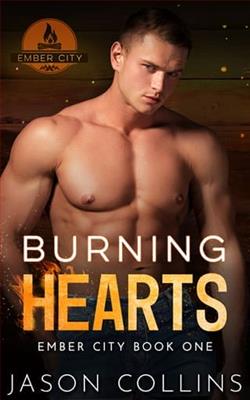Page 18 of The Silence Between
I was about to give up when Leo appeared, running across the campus quad, slightly out of breath by the time he reached me.
“I'm so sorry,” he said between breaths. “Mrs. Hernandez agreed to watch the kids, but Sophie had a meltdown when I tried to leave. Complete with tears and clinging to my leg.” He straightened, finally looking at me properly. “You look...different. Good different.”
“So do you,” I said, taking in his clean button-down shirt and jeans without their usual worn spots.
We made it inside just as the lights dimmed, finding seats toward the back. The auditorium was intimate, maybe sixty seats arranged in a semicircle around a small stage where a single microphone stood waiting. Program books opened on our laps, we sat close enough that our shoulders touched.
The poet, a woman in her sixties with silver dreadlocks and weathered brown skin, took the stage without introduction. Her voice, rich and resonant, filled the space as she began reading poems about borders, belonging, and beauty in broken places.
Throughout the reading, I was hyperaware of Leo beside me: the way his shoulder pressed against mine, his quiet breathing, the subtle nods when a particular line resonated. During a poem about feeling caught between worlds, I glanced at his profile, illuminated in the soft stage lighting—his expression open and vulnerable in a way I rarely saw, his eyes reflecting the stage lights, lips slightly parted in concentration.
Beautiful. The word surfaced in my mind, simple and startling in its clarity.
I looked away quickly, heart racing, suddenly certain of what I'd been circling for months: what I felt for Leo was far beyond friendship. The realization terrified and thrilled me in equal measure.
After the reading ended and applause faded, we lingered on campus, walking slowly past buildings gone quiet for the weekend. Neither of us mentioned going home yet.
“What did you think?” I asked as we approached a fountain lit from beneath, water cascading over tiered stone.
“Her poem about the borderlands,” Leo said, sitting on the fountain's edge. “How did she put it? 'The borders we cross are less about geography than about who we're allowed to become.'” He looked up at me. “That hit hard.”
I sat beside him, close but not touching. “I liked the one about finding beauty in broken places.”
“Of course you did,” he said with a small smile. “The eternal optimist.”
“I'm not, though,” I admitted. “Not really. I just...” I hesitated, then decided to risk honesty. “I want to study creative writing. Not political science, not law. Writing. Poetry, maybe. My parents would hate it.”
Leo's eyebrows rose. “I didn't know that.”
“I haven't told anyone. It feels impossible, like some alternate life I'll never have.”
“I get that,” he said quietly. “Sometimes I think about college and it feels like I'm planning for someone else's life. Like, who am I kidding? What if Dad doesn't come back this time? What if Mom loses another job? The kids need me.”
The vulnerability in his voice wrapped around my heart and squeezed. We'd moved from poetry to confessions, crossing yet another threshold.
When our hands accidentally touched on the stone edge of the fountain, Leo's pinky finger hooked tentatively over mine. Neither of us acknowledged it verbally, but neither pulled away. We sat like that, barely connected but completely present, until the campus clock tower chimed nine-thirty.
Everything was changing, and nothing would ever be the same.
* * *
Late October arrivedwith crimson leaves and college application deadlines. I sat in the school library during my free period, staring blankly at calculus problems while my mind wandered back to Leo, as it always seemed to do these days.
Since the poetry reading, we'd existed in a strange, exhilarating limbo. Small touches, lingering looks, conversations that went deeper than either of us had gone before. But neither of us had taken the final step, crossed the last threshold.
The uncertainty was becoming its own kind of torture. Was I imagining the electricity between us? Was I risking our friendship for something that might ruin everything? And what would it mean for my carefully planned future, for my relationship with my conservative parents?
I was so lost in thought I didn't notice Leo until he slid into the chair opposite me, his expression unusually serious, tension radiating from his shoulders.
“I need to talk to you,” he said quietly. “Not here.”
Twenty minutes later, we did something neither of us had ever done before: we cut class. My car headed out of town toward Riverton Orchards, where rows of apple trees offered privacy in the crisp autumn air.
We walked between trees heavy with late-season fruit, the smell of apples and earth surrounding us. Leo's hands were shoved deep in his pockets, his breath visible in the cool air.
“Mom lost her job,” he finally said. “Too many absences. She was trying, I really think she was, but the pain gets bad and the medication makes her unreliable. And Dad...” He stopped walking, his face tight with controlled emotion. “He's been gone three days. Took the rent money before he left.”
My stomach dropped. “Leo, I'm so sorry.”















